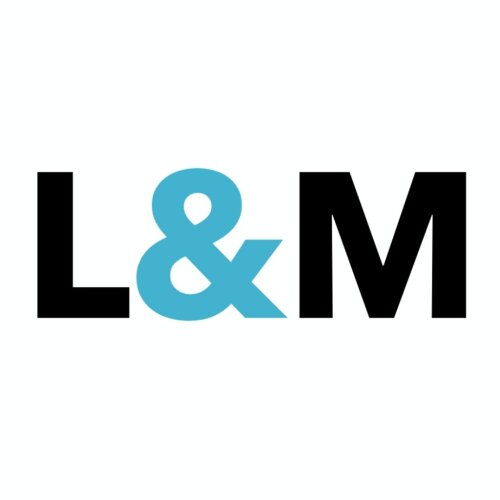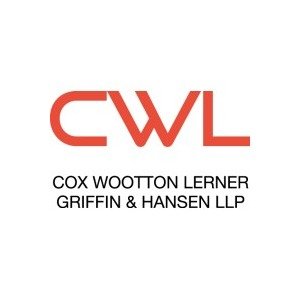Best Trademark Lawyers in San Francisco
Share your needs with us, get contacted by law firms.
Free. Takes 2 min.
List of the best lawyers in San Francisco, United States
About Trademark Law in San Francisco, United States
Trademark law in San Francisco, United States is governed by federal laws such as the Lanham Act, as well as state laws and regulations. A trademark is a form of intellectual property that includes logos, brand names, slogans, and designs which are used to identify and distinguish goods or services. Registering a trademark provides exclusive rights to the owner and helps protect against infringement by others.
Why You May Need a Lawyer
There are various situations where seeking legal help in trademark matters can be beneficial:
- You want to register a trademark: An attorney can guide you through the complex process of registering a trademark with the United States Patent and Trademark Office (USPTO) and ensure your application meets all the necessary requirements.
- Infringement concerns: If you suspect someone is using a mark similar to yours, a lawyer can assess the situation, determine if infringement has occurred, and advise you on the appropriate course of action.
- Licensing and contracts: If you plan to license your trademark or enter into agreements involving your intellectual property, an attorney can help review and negotiate contracts to protect your rights and interests.
- Trademark litigation: If you find yourself involved in a trademark dispute or facing legal action, hiring a lawyer experienced in trademark litigation is crucial to protect your rights and help navigate the legal process.
- Trademark portfolio management: If you have multiple trademarks or a comprehensive branding strategy, a lawyer can assist in managing and enforcing your trademark portfolio, ensuring maximum protection.
Local Laws Overview
In San Francisco, United States, there are no specific local laws that differ from federal trademark laws. However, it is important to be aware of local business regulations and practices that may impact your trademark rights. Consulting with a knowledgeable attorney can help you understand any local nuances and ensure compliance with all relevant laws.
Frequently Asked Questions
1. What is the difference between a trademark and a copyright?
A trademark protects logos, brand names, and other identifiers of goods or services, while a copyright protects original artistic, literary, or written works.
2. How long does trademark registration last?
Trademark registration can last indefinitely if the mark is continuously used and the required maintenance filings are submitted to the USPTO.
3. Can I use a trademark that is similar to an existing one?
Using a trademark that is similar to an existing mark can lead to legal issues. It is advisable to seek legal guidance to ensure your mark does not infringe upon someone else's rights.
4. Do I need to register my trademark to have protection?
No, you can establish some rights in a mark simply by using it in commerce. However, federal registration provides additional benefits and stronger protection.
5. Can I trademark a domain name?
Yes, a domain name can potentially be registered as a trademark if it meets the necessary requirements and is used to identify and distinguish goods or services.
Additional Resources
For further assistance or information on trademark law, consider these resources:
- United States Patent and Trademark Office (USPTO) - www.uspto.gov
- California Secretary of State - Trademark or Service Mark Registration - www.sos.ca.gov/business-programs/trademarks
- San Francisco Bar Association - Intellectual Property Law Section - www.sfbar.org/sections/intellectual-property
Next Steps
If you require legal assistance regarding trademark matters in San Francisco, consider the following steps:
- Research and identify attorneys with expertise in trademark law.
- Compile a list of potential lawyers and review their qualifications, experience, and client reviews.
- Contact the attorneys for an initial consultation to discuss your specific needs and evaluate their suitability for your case.
- Select an attorney who is knowledgeable, experienced, and with whom you feel comfortable working.
- Proceed with your chosen attorney by providing all relevant documents and information to initiate the legal process.
Lawzana helps you find the best lawyers and law firms in San Francisco through a curated and pre-screened list of qualified legal professionals. Our platform offers rankings and detailed profiles of attorneys and law firms, allowing you to compare based on practice areas, including Trademark, experience, and client feedback.
Each profile includes a description of the firm's areas of practice, client reviews, team members and partners, year of establishment, spoken languages, office locations, contact information, social media presence, and any published articles or resources. Most firms on our platform speak English and are experienced in both local and international legal matters.
Get a quote from top-rated law firms in San Francisco, United States — quickly, securely, and without unnecessary hassle.
Disclaimer:
The information provided on this page is for general informational purposes only and does not constitute legal advice. While we strive to ensure the accuracy and relevance of the content, legal information may change over time, and interpretations of the law can vary. You should always consult with a qualified legal professional for advice specific to your situation.
We disclaim all liability for actions taken or not taken based on the content of this page. If you believe any information is incorrect or outdated, please contact us, and we will review and update it where appropriate.
















